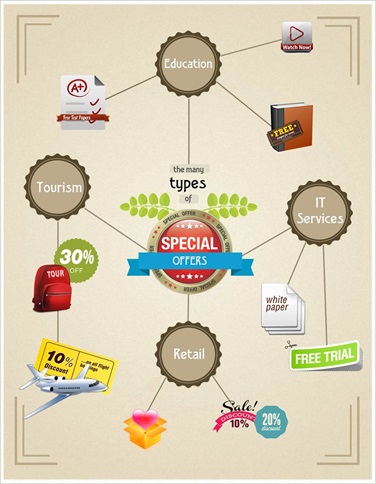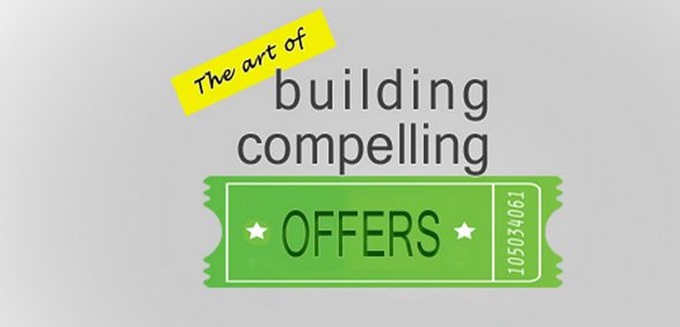The webinar on ‘Creating and Launching Compelling Marketing Offers for Lead Generation’ was received well, thanks to the enthusiasm showed by the attendees. Those of you, who were unable to attend the webinar or missed out on certain points, here is a brief summary of some of the questions asked and tips suggested at the webinar on ‘Creating and Launching Compelling Marketing Offers for Lead Generation’. Alternatively, you can also watch the webinar here.
Webinar FAQs
Question 1
How can I get better leads and thereafter, engage them in a better way for my business?
Better engagement of leads in the context of B2B marketing depends on several factors. Whatever the case may be, there are two factors that every marketer must keep in mind in order to get better leads. This holds good for any business, whether it is a B2B (like web hosting services company) or a B2C (like a jewellery business), it involves the same procedure.
Identifying social platforms where the leads are active: In case of B2B, it’s a function of where your target audience is. For example, an education company would ideally look at Facebook to generate leads since most youngsters these days have a Facebook Account. On the other hand, a business firm should look at LinkedIn or Twitter for prospective leads. If they are not on social media then you might have to reach out to them through email.
Investing on appropriate lead generation channels for your business: After you determine that, you can invest on lead generation channels like Google ads or Facebook Ads, or Email Marketing. Whether you are doing email marketing, PPC campaigns or Google ads, the intent is to bring traffic to your website. Once you get visitors, you should always try to pursue the visitor, try and make yourself available for them.
Question 2
How to create an compelling marketing offers that resonate with my target audience?
There are a couple of things that marketers must remember in order to create an offer that resonates their target audience. Here are a few pointers that you could take note of for creating compelling marketing offers for lead generation.
Know you service: The offer has to be a function of what your company stands for. Once you dig deeper into your service, you will be able to come up with some unique elements around your offering, that you can take to your target audience and enable you to provide better marketing offers.
Know your competitors: You need to figure out at what points you will have an edge over your competitors that are trying to sell the same segments. You need to completely understand what your competitors have to offer and based on that, package your services better. The key is to segment your audience and then you can come up with relevant compelling marketing offers for lead generation.
Know what your target audience wants: Make your service or product more desirable for your customers. Find out what they want through surveys or experimentation. Once you understand that, you will be able to provide them what they want
Finally, if your marketing offers are free of cost, but does not meet your marketing or sales objectives, then it is high time that you either stop giving it free of cost, or make it more desirable and valuable to make people want to opt for it. In this case, you can give it for free but charge for something else. For example, you can give the product for free but charge for the services. That is a function of your pricing strategy. It’s a matter of experimentation – trial and error so to say. Give it a try. If it works out, good, if not, then you need to change it.
Question 3
What is the ideal time for marketing offers?
The ideal time for providing compelling marketing offers depends on the industry. The ideal time for B2C services may be be the ideal time for B2B services.
In case of B2B:
Time of the year: Marketing offers must not be presented during holidays. Any holiday season like Diwali and other festival seasons must be avoided. It is also not wise to present marketing offers at the end of the year so to say as it includes several public and religious holidays. Also avoid the beginning of the year and end of quarters.
Time of the week: Looking at it more closely, compelling marketing offers among B2B firms should be shared on specific days. Based on research done, it has been found that the recipient is more likely to see the offer on a Wednesday or a Thursday, preferably during the second half. Also, it should be a business day. Giving an offer on a Monday or Friday will not give you the desired results as Monday’s and Friday’s are the first and last working days of the week, making them both, very busy working days.
In case of B2C:
Time of the year: The practice is almost the exact opposite in case if B2C marketing. In this case, it is clearly a better idea to provide compelling marketing offers during the holiday season. For example, discounts on airline tickets would ideally be presented before the summer or winter holidays. Offers on clothing garments and accessories could be presenting during the holiday/festive seasons. So the practice really depends on the industry.
Time of the week: On a weekly basis, the ideal time for marketing offers is the weekend, simply because that the time most people are free and do not want to get back to work. It is their time to splurge and spend time with their families. Offers on weekends are more likely to be seen by customers as they have more leisure time.
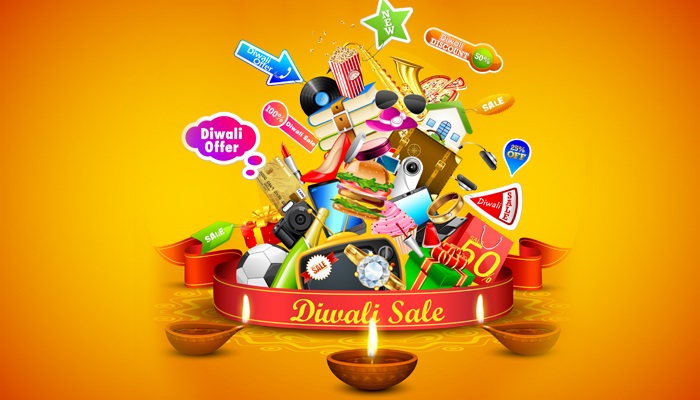
Question 4
You mentioned that the perceived value for marketing offers must be higher than their perceived costs. Could you elaborate on that?
Your target audience would typically weigh your offer in terms of the value they get from it (Perceived Value) and the cost they incur in availing the offer (Perceived Cost). They would avail the offer only if the perceived cost is lower than the perceived value.
This can be better explained using an example. Let us suppose you are a Travel Company giving the following offer –
Promise of 1000/- Off on a Travel Package of 8000/- in exchange for basic details of prospective travellers, like Name, Email ID and City.
This offer has high value, because the perceived cost (minimal personal information) is much lower than perceived value.
However, if in the same offer, you ask for travellers’ credit/debit card information as well, the offer would lose its value.
Why?
Because the perceived value remained the same; however, the perceived cost increased manifold – people are skeptical about sharing their credit card details.
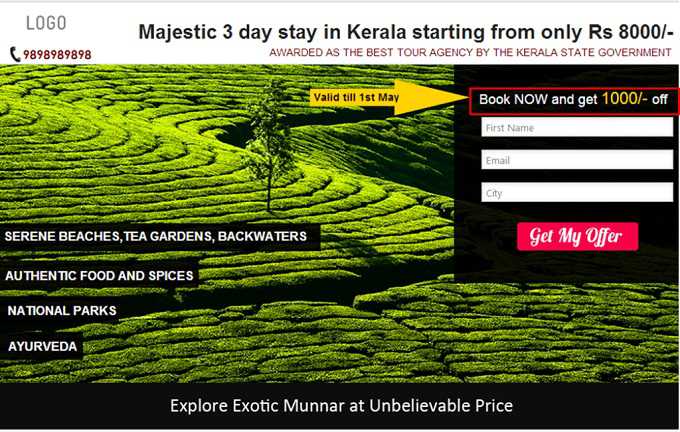
The other factor to be kept in mind is that the perceived cost may not just be monetary. The Perceived Cost can also refer to the amount of time spent on that. So in case of a form, they would rethink about spending their time and effort on filling up that form that has low perceived value.
Question 5
What is A/B Testing?
A/B Testing refers to testing different variations of either the same marketing offer or different components of the same marketing offer. In online marketing, if you have multiple versions or elements of the same marketing offers, you can by means of third-party tools, present one offer to one set of the audience and the other offer to the other set of audience, or present it randomly.
For example, if you have two versions of the same marketing offer, you can randomly present these two variants to different audience groups. Thereafter, based on the analysis, as described in the image below, you can find out which marketing offer is working better.
The analysis of the offer shown in the image below shows a good conversion rate –
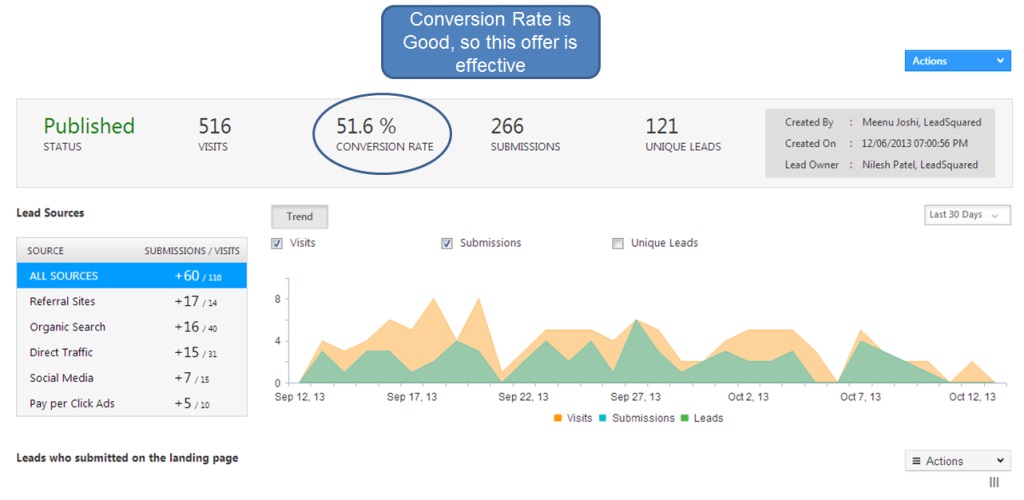
In comparison to the offer above, the analysis of the offer shown in the image below shows a lower conversion rate –
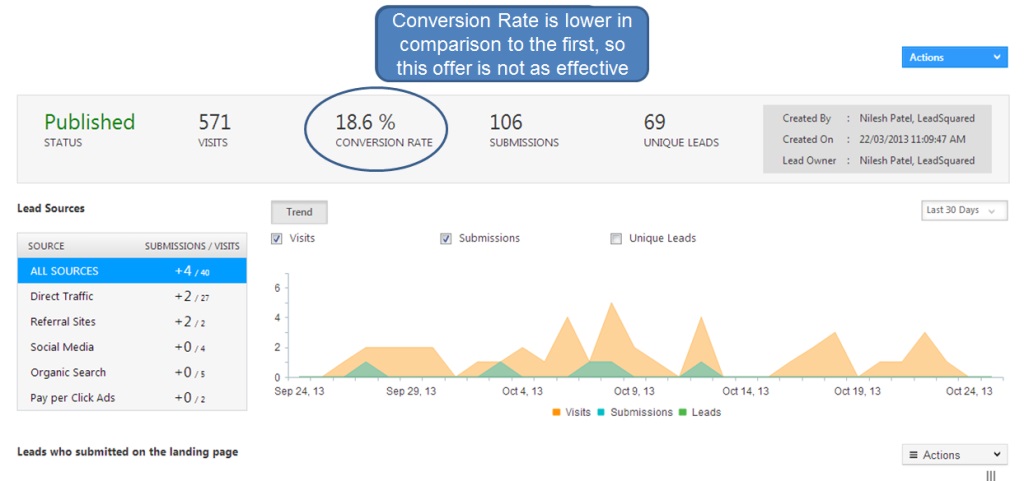
Thus, you can determine which marketing offers are engaging with the visitors more and henceforth, continue with that offer, in this case, the first one.
Here are a few industry specific compelling marketing offers that could be useful to you.
